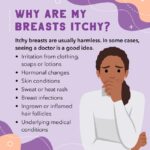Feeling sleepy after eating is a common experience. Whether it’s the infamous post-holiday meal nap, the struggle to stay awake driving home from a restaurant, or nodding off in an afternoon meeting after lunch, postprandial somnolence is something many of us encounter.
You might have heard the myth that sleepiness after eating is due to blood rushing away from your brain to aid digestion. However, scientific evidence refutes this. Post-meal drowsiness is a complex phenomenon resulting from a combination of bodily processes and behaviors. While you might not completely eliminate it, understanding the causes can help you minimize its impact.
What is Postprandial Somnolence?
Postprandial somnolence, often referred to as post-meal sleepiness, is the scientific term for the feeling of drowsiness after eating. This is especially prevalent in the early afternoon, coinciding with the natural “post-lunch dip” in our circadian rhythm. Research has identified several biological mechanisms contributing to this phenomenon:
Scientists believe postprandial somnolence may serve evolutionary purposes, such as directing the body’s energy towards digestion and energy conservation.
Is Post-Meal Sleepiness Normal?
Experiencing sleepiness after a meal, particularly lunch, is indeed very normal. However, the intensity varies among individuals; some are more susceptible than others, and some barely notice it. Interestingly, individuals who identify as “night owls” or those with Attention Deficit Hyperactivity Disorder (ADHD) might be less affected by the post-lunch dip.
While occasional post-meal sleepiness is common, persistent or excessive daytime sleepiness could indicate an underlying health issue. Conditions like insomnia and sleep apnea, as well as neurological, endocrine, or mood disorders like depression, can manifest as excessive daytime sleepiness.
“Some degree of sleepiness after meals is normal. However, excessive sleepiness, especially when accompanied by symptoms like nausea, brain fog, or dizziness, warrants medical consultation.”
Dr. Lulu Guo, Sleep Medicine Physician
Which Foods Contribute to Sleepiness After Eating?
While the act of eating itself plays a role, the type of food you consume significantly impacts post-meal drowsiness. Even skipping lunch might not prevent the post-lunch dip, but certain foods are more likely to induce tiredness.
-
High-Fat Foods: Meals rich in fat can lead to increased feelings of fatigue. Furthermore, diets consistently high in fat can disrupt nighttime sleep patterns, exacerbating daytime tiredness. It’s advisable to limit foods high in unhealthy fats, particularly saturated fats found in fried foods, pastries, pizza, potato chips, and processed meats.
-
High-Carbohydrate Foods: Meals high in carbohydrates are more likely to make you sleepy compared to those low in carbs. It’s wise to moderate your intake of foods and drinks loaded with processed sugars and starches, such as sweets, sugary juices, and white bread. These can cause rapid spikes in blood sugar levels, potentially leading to subsequent tiredness.
You might have heard about tryptophan, an amino acid in foods like turkey, being the culprit behind post-meal sleepiness. Tryptophan is a precursor to melatonin and serotonin, hormones that promote sleepiness. However, tryptophan alone isn’t the primary cause of drowsiness after large holiday meals. Instead, consuming a “heavy” meal packed with calories from both fat and carbohydrates is the more significant contributor to postprandial somnolence.
Other Factors Causing Sleepiness After Meals
The timing of your meal also plays a crucial role in post-meal sleepiness. For instance, if you eat lunch during the early afternoon, it coincides with a natural dip in your circadian rhythm’s wakefulness signals and a heightened inclination towards sleep. Beyond meal timing, several other factors can trigger or intensify post-meal sleepiness.
-
Sleep Deprivation or Disturbed Sleep: If you experience poor sleep quality or insufficient sleep, post-meal drowsiness is likely to be more pronounced due to an elevated sleep drive. Lack of adequate sleep makes you more susceptible to feeling tired at various times, including after meals.
-
Blood Sugar Imbalances (High or Low): Fatigue can be a symptom of both elevated and reduced blood sugar levels. Individuals with diabetes are particularly vulnerable to these fluctuations due to challenges in regulating blood sugar, which can be exacerbated by improper insulin dosage. Dietary choices, alcohol consumption, and changes in physical activity can also contribute to blood sugar imbalances.
-
Iron Deficiency: Low iron levels increase the risk of developing Restless Legs Syndrome (RLS), which can disrupt nighttime sleep and result in excessive daytime sleepiness, including post-meal drowsiness. Addressing iron deficiency can improve both sleep quality and daytime fatigue.
-
Alcohol Consumption: Alcohol has sedative effects and can induce sleepiness. This effect is amplified if you are already sleep-deprived. Consuming alcohol with meals can intensify post-meal drowsiness.
-
Chronotype: Research suggests that “larks,” or morning people, are more prone to experiencing post-lunch sleepiness compared to “night owls.” This difference may be related to variations in circadian rhythm and how individuals’ bodies respond to meal timing and digestion throughout the day.
How to Minimize Tiredness After Eating
While completely eliminating post-meal drowsiness might be challenging, several strategies can help reduce its likelihood and intensity:
- Eat Balanced Meals: Opt for meals that are balanced in macronutrients, including lean protein, complex carbohydrates, and healthy fats. This can help stabilize blood sugar levels and prevent energy crashes.
- Control Portion Sizes: Large meals are more likely to induce sleepiness. Eating smaller, more frequent meals throughout the day can be beneficial in managing postprandial somnolence.
- Limit High-Fat and High-Carb Processed Foods: As discussed, these foods are linked to increased drowsiness. Choose whole, unprocessed foods whenever possible.
- Stay Hydrated: Dehydration can contribute to fatigue. Drink plenty of water throughout the day, especially around mealtimes.
- Time Your Meals Strategically: If possible, avoid heavy meals during times when you need to be most alert, such as early afternoon meetings.
- Engage in Light Physical Activity After Eating: A short walk after a meal can aid digestion and help combat sleepiness.
- Ensure Sufficient Nightly Sleep: Prioritizing good sleep hygiene and getting enough sleep each night reduces overall sleep drive and can lessen post-meal drowsiness.
When to Seek Medical Advice
If post-meal sleepiness consistently interferes with your daily life, or if lifestyle adjustments don’t provide relief, it’s advisable to consult your doctor. You should also seek medical attention if you suspect your daytime sleepiness might be related to a sleep disorder, a mental health condition, or if you experience unexplained symptoms like fever or headaches along with fatigue.
Seek immediate medical attention if you experience fatigue accompanied by any of the following symptoms:
- Blurred vision
- Dizziness
- Swelling
- Confusion
- Inability to urinate
- Thoughts of self-harm
Still have questions? Join the Community!
Connect with sleep health professionals and others in the Sleep Care Community for trusted advice and support. Whether you’re dealing with insomnia or looking for the right sleep products, personalized guidance is available from experts who understand sleep best.
[
About Our Editorial Team
](/about-us)
Written By
Lucy Bryan, Contributing Writer
Lucy Bryan is a seasoned writer and editor with over a decade of experience in higher education. She holds degrees in journalism and creative writing.
Medically Reviewed by
Dr. Lulu Guo, Sleep Medicine Physician
Dr. Lulu Guo is a double board-certified physician in Family and Sleep Medicine, and a graduate of the prestigious Medical Scholars program at Michigan State University.
Learn more about our Editorial Team
References
Learn More About Nutrition and Sleep
Nutrition and Sleep: Diet’s Effect on Sleep
Does Warm Milk Help You Sleep?

